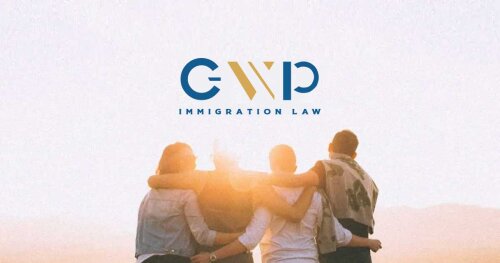Best Dependent Visa Lawyers in New Mexico
Share your needs with us, get contacted by law firms.
Free. Takes 2 min.
Or refine your search by selecting a city:
List of the best lawyers in New Mexico, United States
About Dependent Visa Law in New Mexico, United States
A Dependent Visa in the United States is an immigration status given to family members, such as spouses and children, of individuals who hold specific types of visas, including work, student, and other long-term residency visas. In New Mexico, as in the rest of the country, these dependents are allowed to live in the United States while the principal visa holder maintains their legal status. Common dependent visas include H-4 (for dependents of H-1B visa holders), F-2 (for dependents of F-1 students), L-2 (for dependents of L-1 visa holders), and J-2 (for dependents of J-1 exchange visitors). Dependent visas come with their own sets of requirements and restrictions, and applicants must provide proof of their relationship to the principal visa holder.
Why You May Need a Lawyer
Seeking legal assistance for a Dependent Visa in New Mexico can help you avoid mistakes and delays during the application process. Common situations where legal help is often needed include:
- Complex family situations, such as blended families or guardianship issues
- Previous visa denials or immigration violations
- Navigating employment restrictions placed on dependents
- Filing for change of status or extension of stay for the dependent
- Assisting with documentation and evidence to prove the qualifying relationship
- Resolving difficulties in reuniting families separated by immigration barriers
- Representing clients in cases involving removal proceedings or status revocation
An experienced immigration attorney can help ensure the correct forms are filed, deadlines are met, and all legal pathways for your family are considered.
Local Laws Overview
While Dependent Visa regulations are primarily governed by federal law and overseen by agencies such as the United States Citizenship and Immigration Services (USCIS), local specifics in New Mexico can impact your case. New Mexico is known for being supportive of immigrant communities, offering multicultural resources and some local government assistance. Key aspects relevant locally include access to educational benefits for dependent children, varying state-level documentation requirements (such as proof of residence), and eligibility for certain public services. Additionally, New Mexico-based legal aid organizations and advocacy groups can provide support for dependent visa applicants, especially for those facing hardship. However, the core application process, eligibility, and privileges are based on national immigration law, and state law cannot override federal requirements for dependent visa status.
Frequently Asked Questions
What qualifies someone as a dependent for visa purposes?
Generally, a dependent is a spouse or unmarried child (typically under 21 years old) of the primary visa holder. Relationships must be legally recognized and documented.
Can dependents work in the United States on a dependent visa?
Some dependent visas, like H-4 or L-2, may allow for work authorization after applying for an Employment Authorization Document. Others, such as F-2, do not permit employment.
Can children on dependent visas attend public school in New Mexico?
Yes, children on most dependent visas can enroll in public K-12 schools in New Mexico.
How long does it take to obtain a dependent visa?
Processing times can vary based on the visa category and the USCIS workload but typically range from a few weeks to several months.
Can a dependent visa be extended or renewed?
Yes, extensions or renewals are possible as long as the principal visa holder maintains valid status and the dependent continues to meet eligibility requirements.
Are there travel restrictions for dependents?
Dependents can travel outside the United States but should ensure their visa and related documents are valid for reentry. Prolonged stays abroad may impact their status.
What happens if the principal visa holder loses their status?
Dependent visa status is tied to the primary visa holder. If the principal's status ends, dependents usually lose their legal status and may need to depart the country or seek a change of status.
Can a dependent apply for a driver’s license in New Mexico?
Yes, dependents can apply for a New Mexico driver’s license but must provide proof of lawful status and residency.
If my dependent visa is denied, can I appeal?
Yes, but the options depend on the reasons for denial. Consulting with an attorney is highly recommended to discuss possible motions or reapplications.
Can same-sex spouses qualify as dependents?
Yes, legally married same-sex spouses are recognized as dependents for visa purposes under United States immigration law.
Additional Resources
If you need assistance or further information on Dependent Visas in New Mexico, consider reaching out to the following resources:
- United States Citizenship and Immigration Services (USCIS)
- New Mexico Immigrant Law Center
- Legal Aid Society of New Mexico
- New Mexico Human Services Department
- Local community immigrant advocacy groups
- Accredited immigration attorneys licensed in New Mexico
Next Steps
If you require legal assistance regarding a Dependent Visa in New Mexico, start by gathering all relevant documents, including the primary visa holder’s information, marriage or birth certificates, and previous immigration correspondence. Schedule a consultation with a reputable immigration attorney who practices in New Mexico and has experience with dependent visas. It is recommended to prepare a list of questions and clearly outline your situation to maximize the benefit of your legal consultation. Timely action is essential, as immigration laws and policies can change rapidly and delays may impact your family’s legal status in the country.
Lawzana helps you find the best lawyers and law firms in New Mexico through a curated and pre-screened list of qualified legal professionals. Our platform offers rankings and detailed profiles of attorneys and law firms, allowing you to compare based on practice areas, including Dependent Visa, experience, and client feedback.
Each profile includes a description of the firm's areas of practice, client reviews, team members and partners, year of establishment, spoken languages, office locations, contact information, social media presence, and any published articles or resources. Most firms on our platform speak English and are experienced in both local and international legal matters.
Get a quote from top-rated law firms in New Mexico, United States — quickly, securely, and without unnecessary hassle.
Disclaimer:
The information provided on this page is for general informational purposes only and does not constitute legal advice. While we strive to ensure the accuracy and relevance of the content, legal information may change over time, and interpretations of the law can vary. You should always consult with a qualified legal professional for advice specific to your situation.
We disclaim all liability for actions taken or not taken based on the content of this page. If you believe any information is incorrect or outdated, please contact us, and we will review and update it where appropriate.
Browse dependent visa law firms by city in New Mexico
Refine your search by selecting a city.














